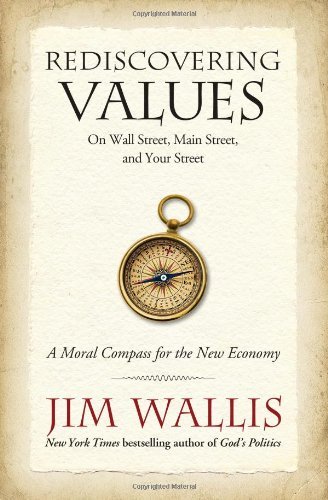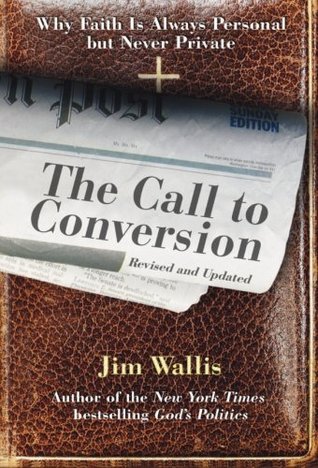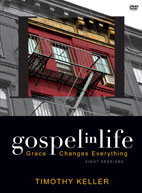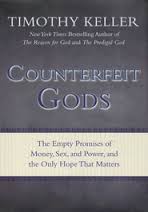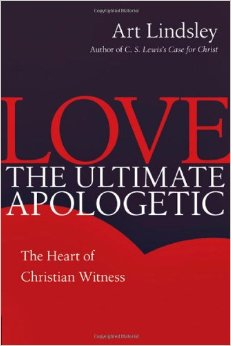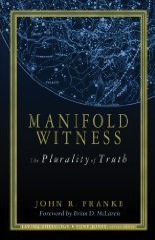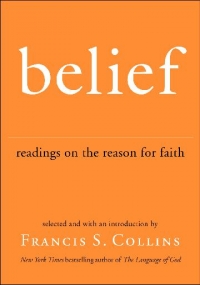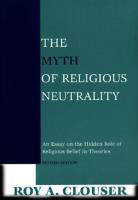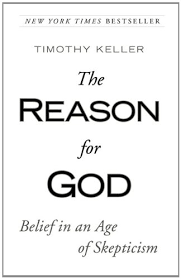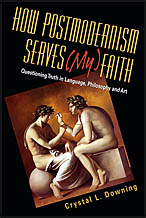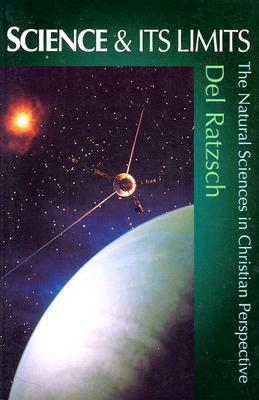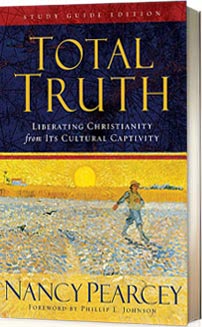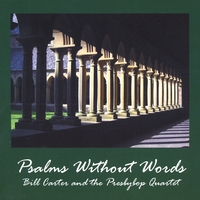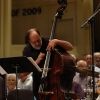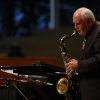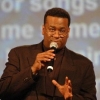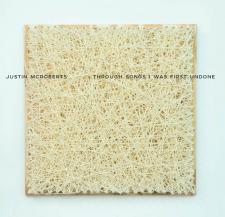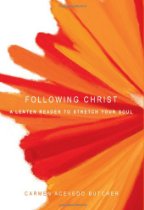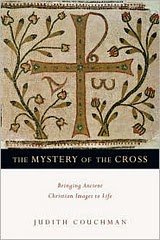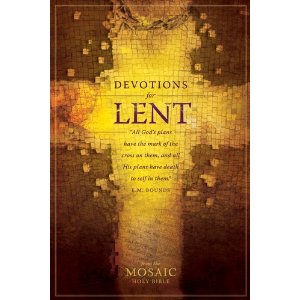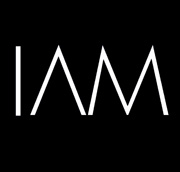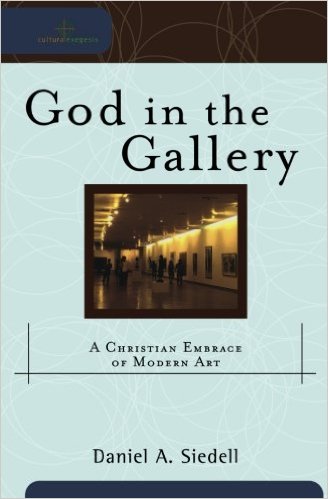I’m sorry this blog post is a bit long. I hope you read it carefully. Thanks.
I received a number of compliments on the last BookNotes blog that criticized Glen Beck for his remark saying people should leave their churches if the church speaks about social justice. I also criticized Mr. Beck for his rude–scary, even–comments about how he intended to hammer and hammer and hammer Sojourners editor, Jim Wallis. His campaign to discredit Wallis and all his “cute” “little” friends I suppose includes me (and maybe you) and I can assure you that Mr. Beck is speaking about stuff he is just wrong about. He is wrong about the Bible and he is wrong about Wallis. There should be no argument about that.
However, this does not mean it is right to be ugly towards him or uncivil in our refutations. Apparently, a few readers thought I may been too dismissive, thinking that I was mocking those who may disagree with Wallis or Sojourners or those that appreciate some of Beck’s perspective. I hope careful readers of the post, and those who read my lengthy replies in the comment section, understand that we here at Hearts & Minds are very eager to promote robust conversation, reading widely, and thinking things through together in light of a Biblical perspective—which means not siding up easily with any simply ideology of the left or right. To be “distinctively Christian” in our approach may be misunderstood, as we may need to offer kind critique to those who are too simplistic or ideological on both sides of the political spectrum. We joke about how we sometimes “offend everyone” but that is hurtful and hard, and we don’t mean to be glib. My remarks were not meant as a critique of serious conservativism (as I said, we recommend the Acton Institutes new DVD curriculum on stewardship in various sides of life.) Still, I think Beck is a good example of a bad example: he is not true to the Bible on this matter of justice (he is a Mormon, but, geesh, he ought to know at least a couple of the thousands of verses about public and social justice) and he is beyond rude in his discourse.
Wallis is different, I think. He has displayed a certain civility in respond to these egregious attacks, and he has offered to come on Glen Beck’s show and talk it out. And, beyond being relatively well-mannered, his book, as I suggested, is not a lefty mirror-image of the right-wing Beck. In fact, with his discussions about values, wholesome entertainment, raising children, being involved in Little League and such, Jim seems like he’s quite willing to focus on the family and sound fairly, well, conservative. As we should, though, he also cares about other people’s families, and wants that to be part of our daily lifestyles, and our politics. He’s quick to renounce greed and the faults of an ideology that makes an idol out of freedom or the market. He is not a Marxist but he isn’t solely a free market guy, either. In that way, he is close to the classic social ethics of the Catholic tradition, similar to the statements of social concern published by the National Association of Evangelicals, and not that dissimilar to those in the Kuyperian “third way” movement such as the Center for Public Justice that seeks a Christian alternative to the secular left and right. His views are enough, but in my view, they aren’t anything as bad as his critics suggest. I have hosted Jim here in the store, and I have read every one of his books and columns for more than 30 years.
Well. Why would I hint that Wallis’ politics are inadequate? As I said, I really liked Rediscovering Values, which is about the cultural and religious shifts we will need if we are going to truly learn from the recent financial disasters. Read my brief comments from the other day and see if it might be a book you might enjoy. I found it very thoughtful, insightful, helpful and we are happy to recommend it, on sale, too. With economics and the economy on everyone’s mind, this is a great time to do some faithful thinking about it all.
Mr.Beck is way off base in his understand about and his accusations of Wallis, but there are those that I trust and respect who have made critiques of Wallis’ earlier books. Of course, not everyone who has concerns about Jim’s work, or the general “religious left” he represents, is nasty and dishonest like Beck has been. Some are civil and, I think, on to something.
For instance, here is a review of Jim Wallis’ God’s Politics offered by Paul Marshal, whose important book God and the Constitution I often recommend (see our “Books By Vocation” pages, and go to the section on politics to read my brief description of it, or put the title into the BookNotes search feature to find other places I’ve reviewed it). This review is a firm rebuke from the characteristically jovial Mr. Marshal, and I think it is an important contribution to what just politics might demand of us, and whether the rhetoric of Wallis, the Call for Renewal, the Red Letter Christians, et al, is adequate. Marshall thinks not, and for some surprising reasons. (It is common to say that the “Christian left” is just beholden to the Democrats as the “Christian right” is to the Republicans, but Paul’s critique is deeper and more profound than that.) I hope you read it, not only to hear a critique of Sojo but to see an example of how to be critical yet fair, naming virtues and faults in an even-handed manner.
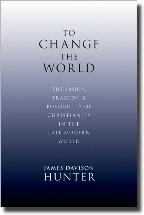 More powerful, however, is a blazing bit of passionate scholarship, several years in the making, by one of the premier sociologists working today, University of Virginia’s esteemed professor and author, Dr. James Davison Hunter. The brand new and magnificent To Change the World: The Irony, Tragedy, and Possibility of Christianity in the Late Modern World (Oxford University Press; $27.95) will surely be regarded as one of the most important serious books about faith and culture published in many a year.
More powerful, however, is a blazing bit of passionate scholarship, several years in the making, by one of the premier sociologists working today, University of Virginia’s esteemed professor and author, Dr. James Davison Hunter. The brand new and magnificent To Change the World: The Irony, Tragedy, and Possibility of Christianity in the Late Modern World (Oxford University Press; $27.95) will surely be regarded as one of the most important serious books about faith and culture published in many a year.
We have heard bits and pieces of this—Hunter has published in Comment and has done some public forums over the years—and we are thrilled to commend it. People who read, as I always do, the thoughtful “Doggie Head Tilt” essays of Mike Metzger at the Clapham Institute blog, or the beautiful work of Steve Garber’s Washington Institute on Faith, Culture and Vocation may resonate with this; it is deeply political and yet not partisan, interested in helping folks relate “Christ and culture” in ways that have integrity, and are transforming, without being ideological. It seems to me that this book will appeal to many of our most valued friends and customers.
I am not prepared to say much about it as I’ve only studied the footnotes (wow!) and the table of contents and the first section. Well, okay, I’ve dipped in and read whole pages here and there, including some of the last pages (gasp.) It is, as I’ve expected, serious, thoughtful, lucid, even beautiful at times. It seems even-handed as he critiques the simple ways in which the religious right and religious left interact with the cultural givens, and their general model for how they approach social change. He offers serious criticism of each approach, and also to the views of a third tradition or model, one found in the anti-Constantinian views associated with Stanley Hauerwas, John Milbank, and
others in the “radical orthodoxy” and “new monastic” movements. His critique of their increasingly significant movement is insightful and important, or so it seems.
I was chided the other day in the BookNotes comment section for saying a certain view was “silly” and I hope you read that comment and my reply. It is important stuff. Hunter more elegantly describes a concern that is close to what I was suggesting. He is like a caring doctor who is good at diagnosing our deepest illnesses. He writes about those (like myself, perhaps) who emphasize a “Christian worldview” and have a certain degree of idealism. We can change the world for Christ–not like the simplistic and moralistic right and left, but by truly understanding and thinking faithfully about every zone of life. We reject dualism and Gnosticism and want to get involved in the real world! Yet, this very idealism seems sometimes to fail to deal with policies on the ground, with historic social forces, with givens–that is, with reality. (In my response to one who thought I was being critical of conservatives I explained that I was rather dismissing those who think that just giving money to private charities is all one must do to be faithful to the call of justice, as if in our globalized and complex world, real policies and politics can be avoided, as if we spiritual people are somehow above it all.) Well, Hunter notes that there is an irony in those of us who hold out such idealistic hopes.
…the idealism expressed in the worldview approach is, in fact, one manifestation of the very dualism its proponents are trying to challenge. Idealism reinforces that dualism by ignoring the institutional nature of culture and disregarding the way culture is embedded in structures of power.
I am not sure exactly who he means, here, and I don’t think it is me, exactly. I agree with him: no, we dare not ignore institutions, nor disregard culture or “structures of power.” Hunter is correct here. Both the right and the left—Beck and Wallis, if you will–are guilty of confusions that Hunter goes to great, great lengths to document, discuss and explore. He isn’t unkind, but he is firm, and there is just enough documentation here to keep the research interesting and focused. I keep skimming it looking for signs of it being too dry or too heavy, and I am happy that on every page I glance at, I am convinced I need to read this carefully, and soon.
 In three major sections, Dr. Hunter offers penetrating appraisals of these most popular approaches of how we “change the world” and what they each mean by that. The book explores not only the usual suspects—Falwell, Wallis, Dobson, Campolo, Robertson, McLaren—but he studies those who are about “culture making” (Andy Crouch) or working to “engage” and be relevant to culture, such as the exciting Catalyst conferences and the Fermi Project (Gabe Lyons.) There is little doubt that Hunter is a premier sociologist who has done his field work within the recent renaissance of evangelical social, cultural, and public work.
In three major sections, Dr. Hunter offers penetrating appraisals of these most popular approaches of how we “change the world” and what they each mean by that. The book explores not only the usual suspects—Falwell, Wallis, Dobson, Campolo, Robertson, McLaren—but he studies those who are about “culture making” (Andy Crouch) or working to “engage” and be relevant to culture, such as the exciting Catalyst conferences and the Fermi Project (Gabe Lyons.) There is little doubt that Hunter is a premier sociologist who has done his field work within the recent renaissance of evangelical social, cultural, and public work.
Hunter invites us to witness to God’s redemptive work in the world in a way that is theologically rooted and culturally realistic, with a manner and framework that is both faithful and fruitful. He is interested in the work of the “grass roots” yet I am sure he pays attention to “cultural elites” and those who can most effectively shape culture in humanizing and Godly ways. (“Does change come from the bottom up or the top down” may be a simplistic question, but it approaches some of his topic, shows at least some of what the book is about.) A few respected friends of ours have been in discussion with him, and they have summarized their view by calling for a “faithful presence.” (For those who might care, I don’t think they mean this in the way Thomas Merton, Dorothy Day, Jim Douglas or Dan Berrigan talked about it, by the way.) This critique of popular modes of faith-based action and a call to think in new ways about the very nature of our involvement in the world is vital, urgent, and I suspect will have very much wisdom to it, even if some will find fault. People smarter than I will be weighing in on it. We think it is going to be much-discussed. We are very glad to be able to announce it here and offer it now on sale, inviting you to think seriously, hoping it generates articles, papers, conversations, initiatives and faithful work, big and small, in your town and mine.
One easy way to get into this conversation is to listen to him talk about the book with the always incisive interviewer (whose perspective will be quite congenial to Hunter’s, by the way) former NPR journalist Ken Myers. His spectacular Mars Hill Audio Journal recently interviewed Mr. Hunter (and, on that bi-monthly issue, also interviews James K.A. Smith, Tom Long on funerals, a philosopher of Christian education, and some other fine thinkers.) You can download it electronically or subscribe to get the CD each month at Mars Hill Audio, here.
If you want to read a quick bit about him, the great folks at Trinity Forum have a bio, here. More helpfully, here is a speech he delivered to some gathered by the Forum, and you can read it–not exactly the book, but close. Do come back and order it from us if you like.
Jim Wallis is right that the Bible calls for justice. Glen Beck is wrong to rail against him with such religious ignorance and talk-show animus. We should read Sojourners (the only magazine we continue to stock in the store) and buy his books, like The Call to Conversion or Rediscovering Values that I highlighted in our last post. Even if they aren’t all they could possibly be (how few books are) they are good. They take us part way towards renewal and faithful living, and they are interesting and helpful.
Paul Marshall’s excellent and thoughtful book about faith and politics, which I cited above, is important as a “next step” of public theology and balanced social thinking after Wallis. Ron Sider’s Scandal of Evangelical Politics comes to mind, and is impeccable—a H&M favorite. More generally, I do continue to love Andy Crouch’s fun Culture Making and recommend it strenuously, hoping it continues to be bought and discussed. The tremendous new re-issue of the Os Guinness’ mystery novel about the church allowing itself to be undermined by our involvement in culture, The Last Christian On Earth, (scroll back a few entries to see our announcement of it) gets us ready for this large, deep conversation, too, and I can’t recommend that enough to thoughtful readers. Guinness fans will know the connection to Hunter. D.A. Carson released a book two years ago on Eerdmans called Christ and Culture that is a bit dry, and a bit academic, but, again, is important for those building a library and vocabulary of working towards Dr. Hunter’s topic. It is important work.
Yet, for those already thinking about this mind-boggling conversation, activists and scholars and anyone wanting to
be well-informed and well-read on faith-based reflections on authentic social change at the start of our new century, “late modernity” as it is, To Change the World is simply a must. Rave, rave endorsements on the back are from Nicholas Wolterstorff, Charles Taylor, Robert Bellah, and Timothy Keller. It will be years, I’d guess, until it comes out in paperback, and it will not be matched anytime soon, I’m sure. You ought to get it. Join the conversation. Thanks for caring–for God and God’s world.
To Change the World
James Davison Hunter
more than 20% off
regularly $27.95
NOW $21.95
Order Here
(takes you to the secure order form page at Hearts & Minds)
Hearts & Minds 234 East Main Street Dallastown, PA 17313 717.246.3333

